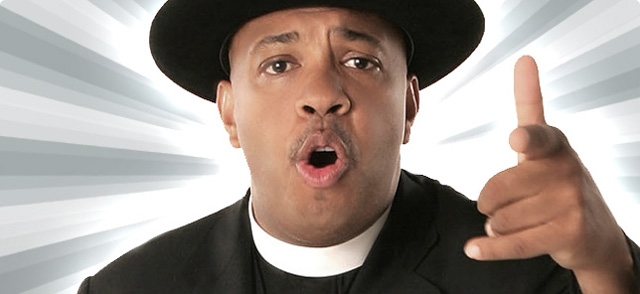WSGA, CAB try to agree on planning
April 12, 2011
Students may find it strange that there are two student organizations arranging for guest speakers to make appearances at Washburn University.
Both the Washburn Student Government Association and the Washburn University Campus Activities Board are charged with the task of setting up events involving guest speakers. However, some feel this is not the most efficient way to get the job done, despite the fact that both organizations have been known to help one another with their respective events.
The Washburn University Board of Regents grants funding for both organizations’ events. The funding is taken from student activity fees, and divided amongst WSGA, CAB, the Washburn University Dancing Blues, Washburn Student Publications and Washburn University Cheerleading.
“In 2006, WUBOR [Washburn University Board of Regents] met with representatives from WSGA, from CAB, Dancing Blues, and also cheerleaders,” said Rizki Aljupri, talks and topics director for CAB. “They agreed to have a percentage for each organization, and that’s when WSGA started getting the biggest amount of the student activity fee money.”
Aljupri said WSGA was granted a disproportionate amount of funding for guest speakers when compared to CAB, especially considering that, he feels, CAB is intended to be the primary student programming board for the university. Part of the issue involves the fact that WSGA has $30,000 designated to speakers alone.
“CAB is the programming board here on Washburn campus,” said Aljupri. “WSGA is student government of course. Last year WSGA allocated $30,000 for their speakers. On the other hand CAB; we are only allocated $25,000, and we have to divide the $25,000 for speakers, providing entertainment, for live music, and for marketing. They have $30,000 for speakers alone.”
Currently, Aljupri is serving as a senator for WSGA, in addition to working for CAB. Having worked for both organizations, he understands both sides of the issue. However he feels the amount of funding allotted to each section of CAB is relatively small.
“For talks and topics, which is my area in CAB, we only have $7,000 per semester. That is our budget to bring speakers to campus. We want to bring at least two speakers every semester, so each of our speakers only cost between $3,000 and $4,000.”
The WSGA Lecture Series, started in 2007, was created to bring big-name speakers to Washburn, and with their relatively large amount of funding, they have been able to so, whereas CAB, with a more limited budget, has to work hard to find speakers that will attract students to events without exceeding their budget.
CAB has arranged the appearance of many well renowned speakers, but some of the members of CAB feel that these events had fairly small turn outs simply because the speaker’s names were not commonly recognized compared to other speakers.
“Many people have said: ‘when CAB plans an event they only have 50 to 100 students coming, but when WSGA plans an event, they have 1000 people coming,'” said Aljupri. “That’s true, but let’s face it, when Eric Alva came, who stood next to Barack Obama when he signed the [Don’t Ask, Don’t Tell] repeal into law, we had 85 to 100 people there, but how much money did we spend on him? Not even $4,000.”
Aljupri said that both organizations should serve the students in their own ways. He believes that CAB should serve students by providing events that will benefit the students, whereas WSGA should serve students by listening to their concerns and ideas as they determine the most appropriate way to govern the student body.
Many members of WSGA feel that there is plenty of room for both organizations to invite their own guest speakers, as this would lead to more high quality speakers appearing at Washburn, and with hard work and determination both organizations can be equally successful.
“I think that there is a place for both, and I don’t think that we should be limited to where CAB is the only one that gets to invite speakers, and WSGA is the only one that gets to plan homecoming,” said Jenna Seematter, chief of staff for WSGA. “If CAB wants to bring a big-name speaker, and wants our help with it, then that would be fine. If they want to put as much work into it as we put into our lecture series, then I think that there’s plenty of room. There’s nothing wrong with having more speakers of high quality at Washburn.”
Since both organizations have different connections within the community, they ultimately bring speakers for different reasons. CAB has four sections that they focus on: Talks and Topics, Variety and Entertainment, Marketing and Technology, and Live Music. In other words, CAB is limited in the events they focus on, according to Seematter.
Seematter believes that as long as the two organization’s schedules are not conflicting with one another, there is no reason for there to be any conflict between them.
“We have all these awesome leaders at Washburn, and if we can combine their forces and get them to work together as opposed to conflicting, then that’s the best solution,” said Seematter. “That’s one of the reasons we have the university calendar, so that when you go out and plan your event, you can make sure there’s nothing else happening on that day.”
Regardless, both organizations benefit Washburn by bringing speakers to the university, regardless of who organized the events. Although some members of CAB would like to see more name recognition for their organization, many members of WSGA feel that name recognition is not of any consequence.
“As a student, I am of the opinion that, I don’t really care who the events are being planned by as long as they’re doing a good job with it,” said Seematter.



